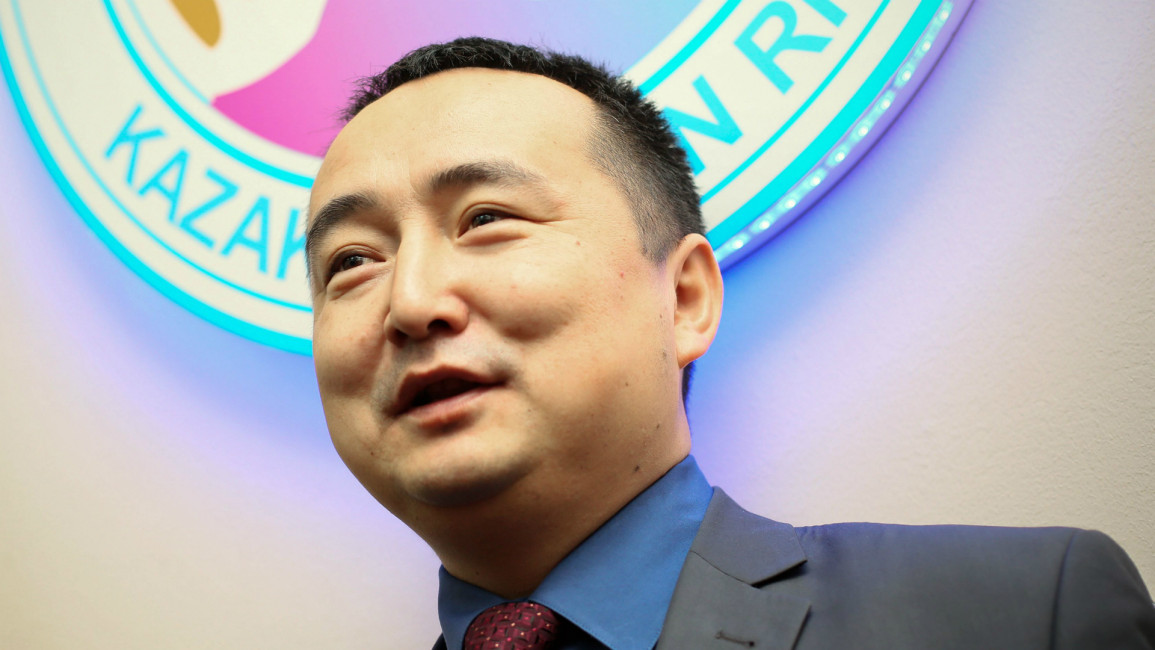Serikjan Bilash, a naturalised Kazakh citizen born in China, was detained in March before being placed under house arrest.
The popular campaigner has helped spotlight alleged rights abuses perpetrated against Turkic minorities in Xinjiang.
Critics say his arrest appeared to be the result of pressure from Kazakstan's economically powerful neighbour.
Bilash's supporters - mostly ethnic Kazakhs born in China - packed a court in the Kazakh capital Nur-Sultan on Monday and cheered after a judge ruled that the case be transferred to a court in Almaty, Kazakhstan's largest city.
Bilash's lawyer Aiman Umarova had appealed for the switch, citing Bilash's desire to serve house arrest in his home city with his family, from whom he has been separated since his detention.
The Communist Party's dragnet in Xinjiang has swept up an estimated one million ethnic Uighurs and other mostly Muslim minorities into "vocational education centres" that numerous studies and reports say are instead harsh internment camps.
Bilash was detained shortly after calling for an informational "jihad" to oppose Chinese pressure on minorities in Xinjiang in February.
He faces a maximum penalty of seven years in jail for the comments, which his supporters say have been taken out of context.
Umarova told AFP the change of location for house arrest was a "partial victory" and called the initial decision to keep Bilash in the capital where he was flown after a dramatic hotel room detention "illegal".
"If the crime they are alleging took place in Almaty, that is where the trial should be held," Umarova said on Monday.
Umarova said that she believed there was no evidence of "hate speech" in the comments Bilash is being tried for, which she says were directed towards the Chinese state rather than Chinese people.
"The whole world is talking about these camps (in China). The whole world is talking about this discrimination," Umarova said.
Speaking at the trial, fiery orator Bilash said Beijing was perpetrating a "genocide" against Turkic minorities in Xinjiang while "Chinese soft power" was working to "occupy our minds" in the Central Asian state.
"More and more Kazakh politicians, more and more Kazakh writers, more and more Kazakh intelligentsia began working for the Chinese Communist Party to service Chinese expansion," he fumed.
There are at least 1.5 million Kazakhs in Xinjiang, making them the second largest Turkic group in the region after the Uighurs.
Kazakhs living in Kazakhstan have used Bilash's informal rights group Atajurt to appeal to the Kazakh government to lobby China for their relatives' release.
Kazakhstan has refused to register Atajurt, which volunteers say is due to pressure from major trade partner Beijing.
Kazakhstan's foreign ministry claimed last year that China had allowed 2,500 ethnic Kazakhs to leave the country and enter Kazakhstan but refused requests for further information.
Follow us on Twitter: @The_NewArab



